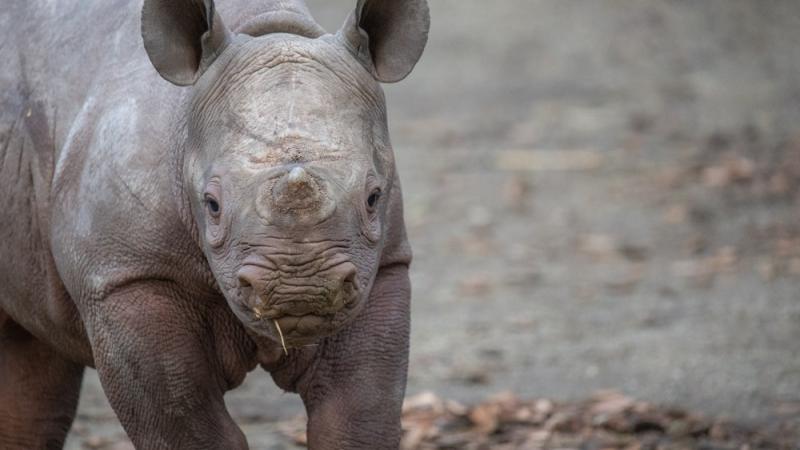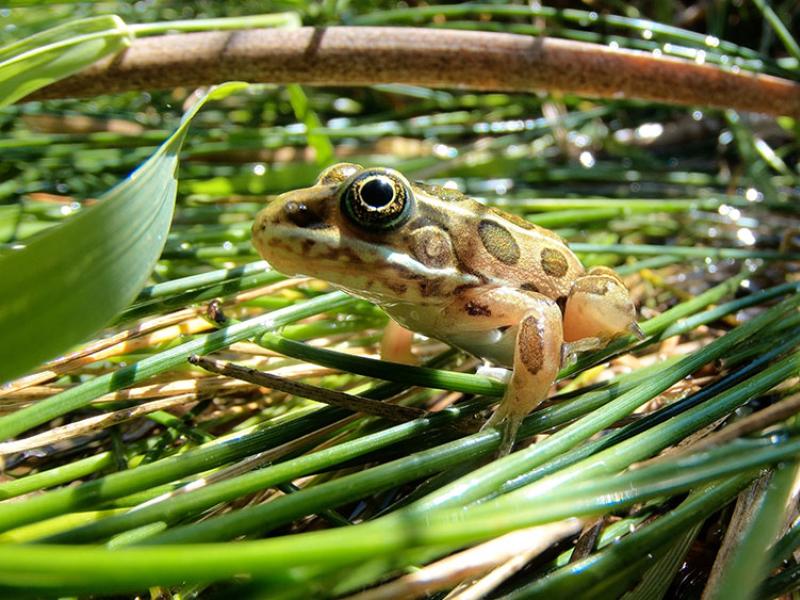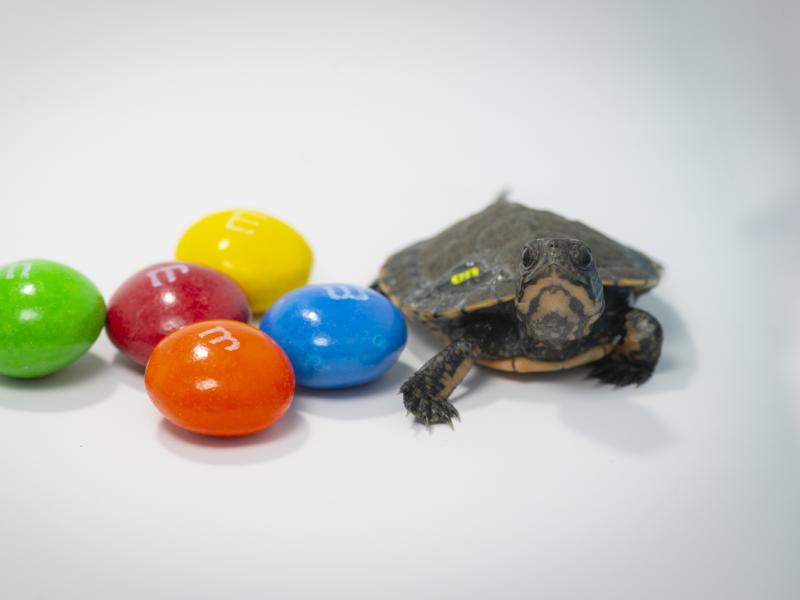Endangered rhino baby has a name: 'Tamu' is sweet as can be

Keepers say Jozi’s new calf is living up to his name, which means ‘sweet’ in Swahili
Care staff have selected a name for eastern black rhinoceros Jozi’s new baby, and it’s a sweet one. He will be called Tamu, which means “sweet” in Swahili. Born Dec. 4 at around 100 pounds, the youngster now weighs over 250 pounds and is venturing outside for longer periods of time.
“Tamu is a brave little calf,” said Chad Harmon, who supervises the zoo’s rhino area. “He’s been poking his head outside more and more, and even zooming away from Jozi every so often — though he always heads right back to find her.”
Jozi and her baby are still mostly off-view to allow the new family a comfortable place to continue to bond, but they’ve been spending more time outside on sunny days.
“Tamu’s working his way up to longer periods of time outside,” Harmon said. “As the weather warms up, we expect to see him romping all over the habitat.”
Lucky guests might get a quick glimpse of Jozi and Tamu on warm, dry days, but Harmon says he still takes frequent naps indoors.
“Rhino calves can grow about five pounds a day,” said Harmon. “That takes a lot of eating and sleeping!”
Harmon, a longtime rhino benefactor, is a board member of the International Rhino Keeper Association, which works to develop and share best practices for caregivers and contribute to rhino conservation.
Jozi’s baby holds much significance for the species, according to Kelly Gomez, who oversees the zoo’s Africa area. Jozi and her companion, King, belong to the eastern subspecies of black rhinoceros, which is considered critically endangered. In 2011, the western subspecies of black rhino was declared extinct.
“These rhinos represent a species that’s among the most imperiled on the planet,” Gomez said. “Hopefully, their story can help inspire a new chapter in their conservation.”
“We’ve gone from half a million to a few thousand rhinos left in the blink of an eye,” noted U.K. naturalist Steve Backshall. “While those left in the wild are ludicrously precious, the rhinos that are in zoos (which were bred there, born there and cannot ever be released into the wild) are of disproportionate importance to their kind.”
Jozi, who weighs around 2,400 pounds, was born Sept. 8, 2012, at the Pittsburgh Zoo. Keepers named her after her parents: “Jo-” from her father, Jomo, and “-zi” from her mother, Azizi.
Jozi moved to the Oregon Zoo in 2021 from to the Milwaukee County Zoo, joining male rhino King, the baby’s father, who arrived from Chicago’s Brookfield Zoo earlier that year. The moves were based on a recommendation from the Association of Zoos and Aquariums’ Species Survival Plan for rhinos. The AZA has established Species Survival Plans for many threatened or endangered species — cooperative programs that help create genetically diverse, self-sustaining populations to guarantee the long-term future of these animals.
More News

Zoo welcomes 'very special group' of Pacific lamprey
Twenty five Pacific lamprey arrived at the zoo from nearby Willamette Falls.June 26, 2025

A leap forward: Endangered frogs hit survival milestone
For the first time, zoo-reared northern leopard frogs survived a winter in the wild at the Columbia National Wildlife Refuge.June 12, 2025

Tiny Endangered Turtle Hatchlings Arrive At Zoo
Seventeen northwestern pond turtle hatchlings, each about the size of a walnut, are making themshellves at home at the Oregon Zoo this summer.June 4, 2025

